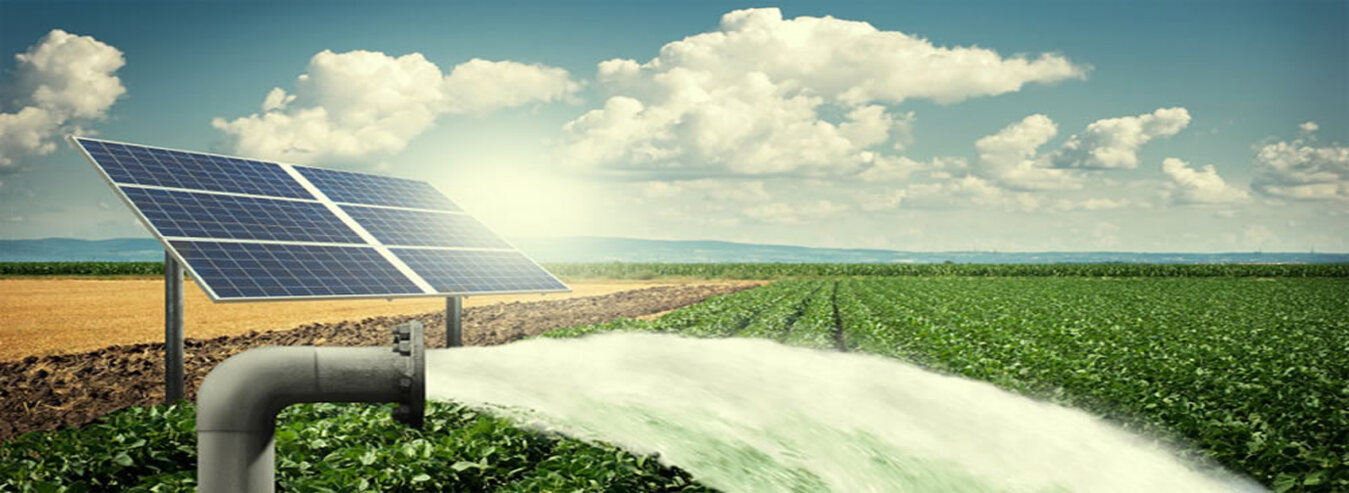
"Solar Agriculture System(Solar Pumps)"
Solar-powered pumps run on electricity generated by photovoltaic (PV) panels or the radiated thermal energy available from collected sunlight as opposed to grid electricity- or diesel-run water pumps. Generally, solar-powered pumps consist of a solar panel array, solar charge controller, DC water pump, fuse box/breakers, electrical wiring, and a water storage tank. The operation of solar-powered pumps is more economical mainly due to the lower operation and maintenance costs and has less environmental impact than pumps powered by an internal combustion engine. Solar pumps are useful where grid electricity is unavailable or impractical, and alternative sources (in particular wind) do not provide sufficient energy.Solar Agriculture System
Solar-powered water pumps can deliver drinking water, water for livestock, or irrigation water. Solar water pumps may be especially useful in small-scale or community-based irrigation, as large-scale irrigation requires large volumes of water that in turn require a large solar PV array. As the water may only be required during some parts of the year, a large PV array would provide excess energy that is not necessarily required, thus making the system inefficient, unless an alternative use can be found.1.jpg)
last.jpg)
Solar Agriculture System
(Solar Pumps)
Solar PV water pumping systems are used for irrigation and drinking water in India. Most of the pumps are fitted with a 1.0 - 10 kW motor that receives energy from a 10 kWp PV array. The 3.7 kW systems can deliver about 124,000 liters of water/day from a total of 50 meters setoff head and 70 meters dynamic head. By 30 August 2016, a total of 120,000 solar PV water pumping systems had been installed around the world. Energy storage in the form of water storage is better than energy storage in the form of batteries for solar water pumps because no intermediary transformation of one form of energy to another is needed.2.jpg)